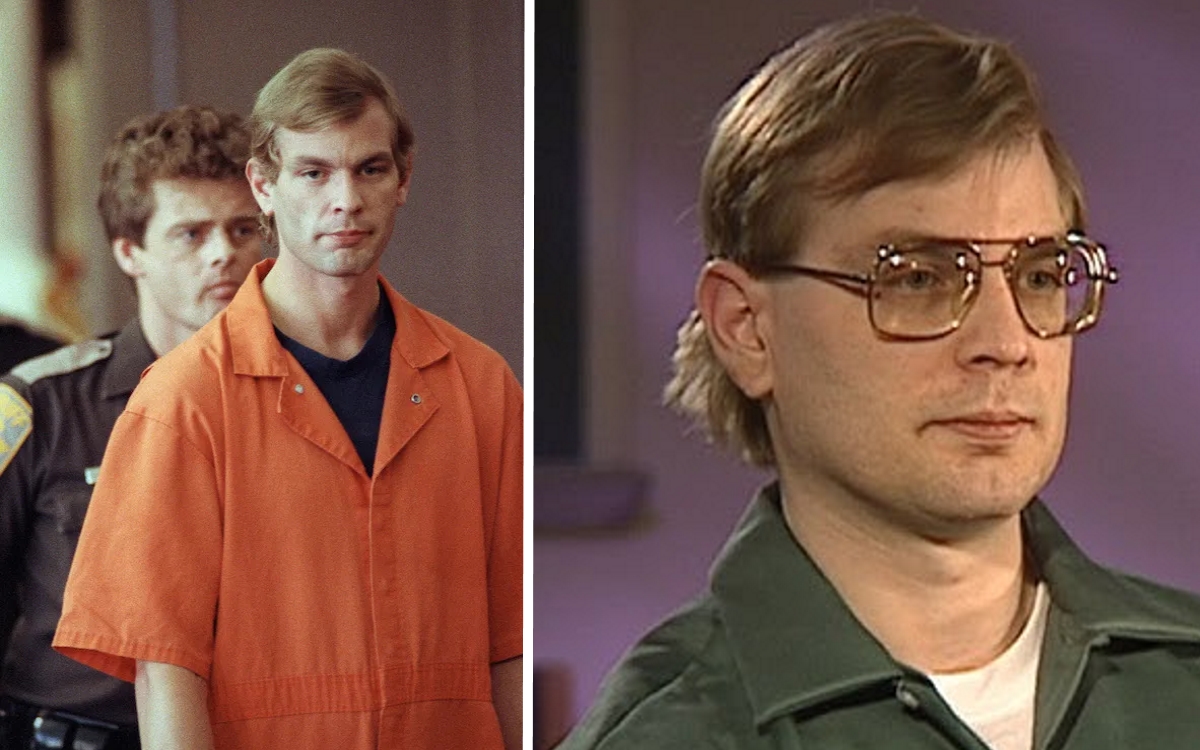The man who walked into Jeffrey Dahmer’s apartment on July 22, 1991 — and changed the course of American criminal history — still sees the horrors of that day every time he closes his eyes. Retired Milwaukee police officer Rolf Mueller, now 69, has spoken in a chilling new interview about the moment he realized the quiet young man in Apartment 213 was one of the most horrific serial killers in U.S. history.
Mueller, one of the two officers who responded to what was first believed to be a simple domestic disturbance, told Fox News that “nothing could have prepared me for what I saw behind that refrigerator.”

“We weren’t supposed to find anything serious — just another loud argument. Then I opened the fridge, and everything changed.” — Officer Rolf Mueller #DahmerFiles— TrueCrimePulse (@CrimePulseTV) June 4, 2025
The memory that Mueller says he “can never shake” is the frozen, decapitated head of a young Black man sitting on a tray inside the refrigerator. “You tell yourself you’re prepared for anything in this job,” he said. “You’re not. Not for that.”
The officers had been called after a panicked man — Tracy Edwards — escaped Dahmer’s apartment and flagged down police. Edwards said he had been drugged and chained and led them back to the residence on North 25th Street. What the cops uncovered there was worse than any nightmare.
Imagine being the first officer into Jeffrey Dahmer’s apartment. That fridge. The photos. The smell. I’d never sleep again. #TrueCrime— KaitlinMontana (@KaitCrimeWatch) June 4, 2025
Mueller said the most chilling part wasn’t even what they initially saw — it was what they found next. In a drawer were dozens of Polaroids showing dismembered bodies in various stages of decay. “I remember pulling out a photo, then another, then another,” he recalled. “And realizing — this isn’t staged. This is real. This man did this.”
The photos would later become some of the most damning evidence at Dahmer’s trial. Investigators found body parts from at least 11 victims inside the one-bedroom apartment — some preserved, some decomposing, others boiled or bleached.
Jeffrey Dahmer kept *souvenirs* of his victims. Police found skulls, hearts, and photo evidence. His apartment was a house of horrors. #Dahmer— Morbid Curiosity (@morbidpodcast) June 4, 2025
Mueller, who has rarely spoken publicly about the experience, decided to speak now as Netflix’s upcoming documentary Monster: Dahmer Files prepares to air never-before-seen footage and audio from the case. He said he was approached to consult but declined, citing mental health reasons.
“I still hear things,” he said. “Smell things. I’ll be walking through a grocery store and something in the meat aisle hits me wrong, and I’m right back in that kitchen.”
The apartment itself has long been demolished — razed in 1992 — but its legacy remains. Survivors of Dahmer’s would-be victims, like Tracy Edwards, have struggled with PTSD and substance abuse. Edwards himself was arrested in 2011 after a homeless altercation, later citing “decades of trauma” from that night.
Tracy Edwards should’ve been protected and healed. Instead, the system let him fall apart. Another one of Dahmer’s victims in the end. #TrueCrime— The Crime Shelf (@TheCrimeShelf) June 4, 2025
Mueller said what angers him most today is how many red flags were missed. “We had complaints. Neighbors smelled things. Heard screams. We brushed it off as domestic or drug stuff. We failed them.”
Indeed, court documents show police were called to Dahmer’s building multiple times over two years, including an infamous 1991 incident in which officers returned a bleeding 14-year-old boy, Konerak Sinthasomphone, to Dahmer — believing it was a lovers’ spat. The boy was murdered hours later.
Konerak Sinthasomphone could’ve been saved. Cops handed him BACK to his killer. The system failed so many. #Dahmer— Justice Network (@JusticeFilesTV) June 4, 2025
For Mueller, the horror wasn’t just in the apartment — it was in the aftermath. “The press, the public, even some of the brass treated it like a curiosity. But these were people. Sons. Brothers. They mattered.”
Dahmer was sentenced to 15 consecutive life terms and was murdered in prison in 1994. Still, the pain he caused never truly left. Mueller says he can’t watch shows or listen to podcasts about Dahmer. “I lived it,” he said. “That’s enough.”






